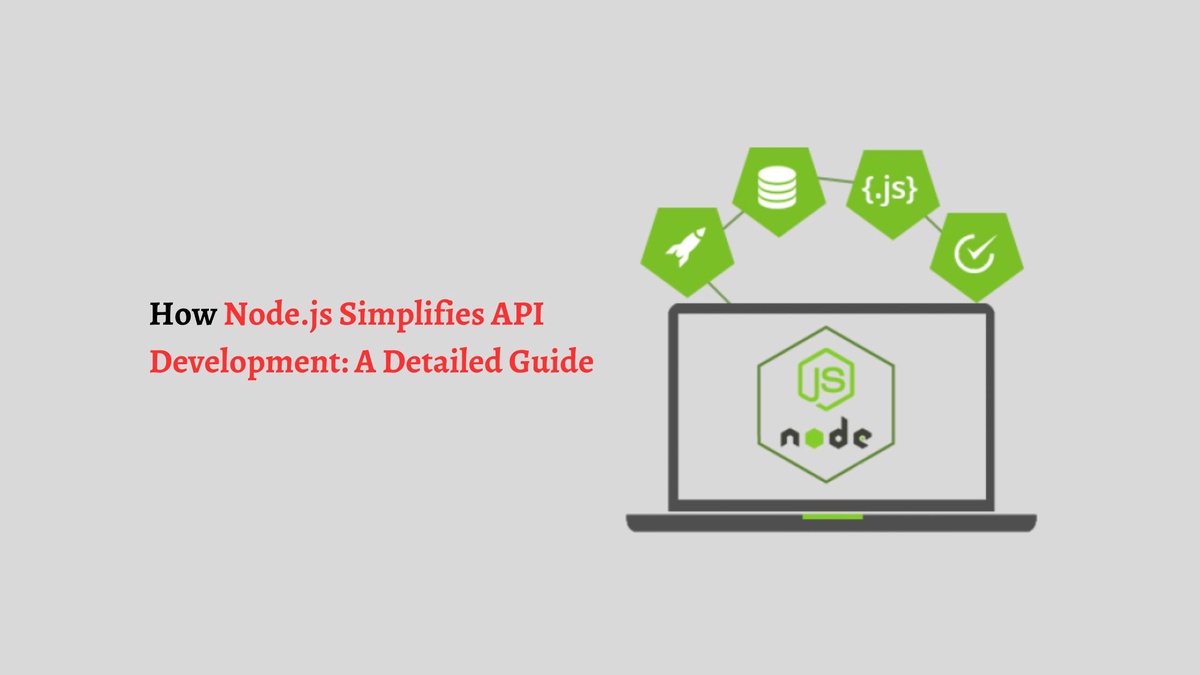Node.js has emerged as a transformative force in the dynamic world of programming frameworks and software development, changing how we think about API development. The strength of Node.js has enabled full-stack developers to cross the conventional gap between frontend and backend development easily. This article explores the factors that led to Node.js' explosive growth and explains why it's the top option for businesses seeking the best backend solutions from a Node.js app development agency or firm.
Unveiling the Node.js Magic
Node.js, born out of the brilliant mind of software engineer Ryan Dahl in 2009, is not just a framework; it's a game-changing open-source JavaScript runtime environment. Built on libuv and Google's V8 JavaScript engine, Node.js enables the execution of JavaScript code on the server side. What makes it particularly exciting is its roots in frontend development, leveraging the popularity of JavaScript in a whole new domain.
Node.js in the Big Leagues
Major players like Netflix, Trello, and LinkedIn have embraced Node.js for its prowess in providing scalable, fast, and lightweight solutions. The non-blocking I/O paradigm of Node.js has elevated client-server interactions, making it a frontrunner for real-time websites with push capabilities. Now, let's explore why Node.js is not just good but ideal for API development.
Unlocking the Benefits of Developing APIs with Node.js:
1. Cross-Functionality
Node.js plays the role of a universal language in the development world. With JavaScript reigning supreme in frontend development, the transition to Node.js at the backend is seamless. This shared language streamlines collaboration between frontend and backend experts, fostering a more productive and cohesive development process.
2. Full Stack JavaScript
The goal of full-stack development has become a reality thanks to the growth of Node.js. JavaScript programmers can now manage both frontend and backend activities, eliminating the need for separate teams for each, simplifying the deployment of Node.js apps, and speeding up the development process.
3. Scalable Environment
Node.js' single-thread event loop is a game-changer for scalability. Its lightweight and fast nature allows for easy handling of multiple concurrent connections, enabling applications to scale horizontally and vertically. Cluster modules further aid load balancing across multiple computers, ensuring seamless growth with business expansion.
4. Simultaneous Request Handling
In handling multiple connections simultaneously, Node.js outshines competitors like Python or Ruby. Its non-blocking I/O paradigm reduces response time, making it perfect for real-time web applications and single-page applications. Node.js efficiently handles incoming requests, ensuring optimal performance and scalability.
5. Real-Time Applications
Node.js is tailor-made for applications requiring low latency and high message processing volumes, such as real-time applications and those utilizing AI. Its ability to sync server and client data swiftly, coupled with efficient handling of multiple client requests, positions it as the top choice for real-time scenarios like live chat and collaborative editing apps.
6. Cross-Platform Compatibility
Node.js offers developers creative freedom by allowing them to build applications that run seamlessly across different platforms and operating systems using the same language. This flexibility sets it apart from frameworks that impose strict rules, making it an ideal choice for those who value innovation and versatility.
7. Node Package Manager (NPM)
NPM, bundled with Node.js, enhances user experience by providing a vast array of readily available components to solve common or niche problems. With over a million modules created by third-party developers, NPM ensures a rich resource pool for developers. The active Node.js community, coupled with NPM's security features, adds to the appeal for both individual and enterprise developers.
Node.js - The Answer to Optimal API Development
In a word, Node.js isn't simply a niche player; it's a transformational force that enables full-stack development that is quicker, smoother, and more effective. It is the ideal choice for real-time and scalable software development due to its event-driven two-way connections, non-blocking I/O style, and scalability. Selecting Node.js for backend development is more than simply a choice; it's a calculated step toward a streamlined and future-proof development process.
Conclusion
Node.js, with its user-friendly APIs and robust resources like YARN and NPM, stands as the epitome of open-source excellence. Its benefits extend far beyond backend APIs, paving the way for a broader transition towards full-stack development. This article has unraveled the immense advantages of Node.js, and with it being freely available for download, there's no better time to explore its capabilities and witness the transformation it can bring to your development endeavors. Node.js development services are not just a way to develop APIs; it's a key to unlocking the true potential of modern, dynamic, and efficient web development. Try it out and embark on a journey towards a more agile, responsive, and scalable future!


No comments yet